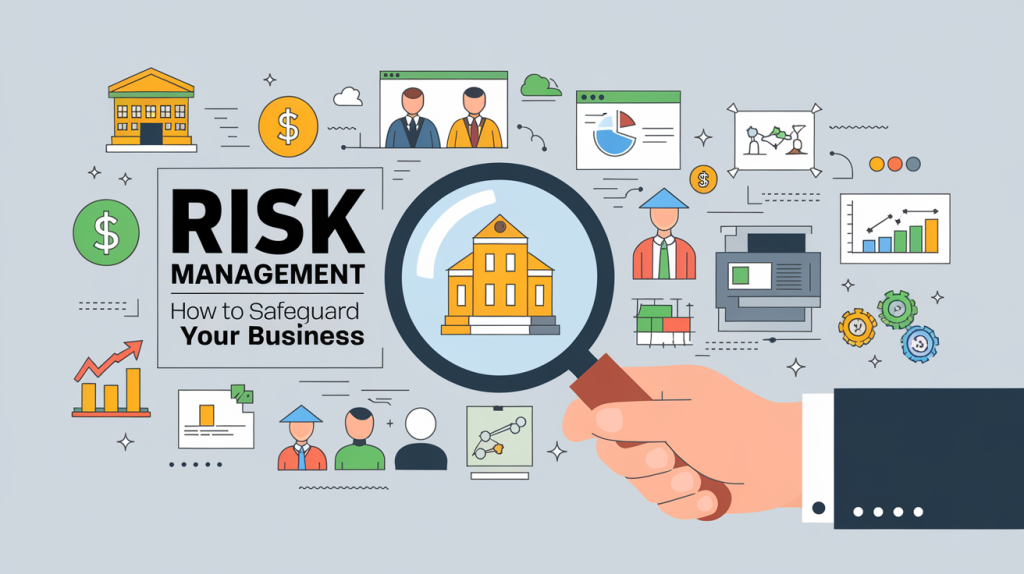In a competitive environment, business risk management strategies play an essential role in protecting manufacturing entities from uncertain events. Supply chain interruptions, among others, pose an array of risks to business operations and profitability. Having appropriate risk assessments for businesses will thus identify threats to operations and help mitigate them before they become serious disasters.
This article will discuss critical business risk management strategies for the manufacturing sector and how risk assessments for businesses can prevent financial and operational losses.
For more information: Business Ideas and Investments Opportunities
What is Business Risk Management?
Business risk management strategies constitute a structured approach to identifying, assessing, and managing risks that would affect the achievement of business objectives. In the manufacturing sector, risks can arise from various factors, including supply chain disruptions, market variations, machine breakdowns, and compliance measures.
Risk assessment for businesses ensures that companies identify potential risks well in advance and devise contingency plans to reduce their occurrences.Business risk management strategies integrated into the day-to-day activities of manufacturing businesses will build resilience and sustainability.
Types of Risks in the Manufacturing Sector
An understanding of the various kinds of risks is imperative for an effective risk assessment for businesses. Some of the salient risks faced by manufacturing companies are given below:
1. Operational Risks
Operational risks occur due to inefficiencies or failures in the production processes, breakdowns of equipment, and human errors. The identification of vulnerabilities and consequent improvement of operational efficiencies are achievable through well-implemented business risk management strategies.
2. Financial Risks
Financial risks include currency fluctuations, increasing material costs, and cash flow challenges. Planning financial and assessment to identify the risks confront manufacturers in minimizing economic crises.
3. Supply Chain Risks
Manufacturers get their raw materials from several suppliers. Due to geopolitical events, transportation issues, or supplier failures, interruptions could delay production. Risk assessments for businesses ensure that adequate alternative sourcing strategies are in place.
4. Compliance and Regulatory Risks
Manufacturers are required to observe regulations on environmental, health, and labor considerations. Non Complying with these regulations could incur huge fines and injuries to reputation. Sound business risk management strategies are, therefore, required to keep abreast of regulatory changes and to implement monitoring mechanisms for compliance.
5. Cybersecurity Risks
With increasing digitalization, there is strategic cyber warfare threatening manufacturing businesses. Risk assessments for businesses should very strongly include cybersecurity measures in safeguarding an organization’s sensitive information and interruptions.
Read our Blogs: The Importance of Diversity and Inclusion in Today’s Workplace
How to Implement Business Risk Management Strategies?
Manufacturers can adopt the following business risk management strategies to protect their operations:
1. Conducting a Comprehensive Risk Assessment
A comprehensive risk assessment for business helps identify threats and assess the potential impact. Businesses should carry out regular analysis of risks and amend their risk management plans as necessary.
2. Diversifying Supply Chains
Single-source supply chains increase exposure. Business risk management strategies include supplier diversification, which can ensure wounds are not felt in the operation of one failed supplier.
3. Investing in Employee Training
If an organization has a well-trained workforce, it can do without operational failures and laws. Such regular programs must be incorporated in the risk assessment for businesses to lessen human error.
4. Strengthening Cybersecurity Measures
Manufacturing companies should adopt stringent cybersecurity protocols such as firewalls, data encryption, employee awareness training programs, and risk assessment for businesses. Such risk assessment would also include measures to prevent and respond to cyber threats.
5. Creating Contingency Plans
Well-designed contingency plans ensure continued business through unexpected disruptions. Disaster recovery programs, along with adequate insurance coverage to alleviate monetary losses, should form part of business risk management strategies.
Benefits of Business Risk Management Strategies
The benefits of adopting the business risk management strategies are many:
- Greater Business Stability: Good risk assessment for businesses minimizes uncertainties and enhances smooth operations.
- Compliance With Regulations: Adherence to safety and environmental specifications spares an organization from legal tussles and upholds its brand reputation.
- Financial Security. It reduces the prevalence of financial losses due to market fluctuations and unexpected events.
- Competitive Advantage: With good risk management practices, an organization positions itself to be more successful in the long run than the less proactive counterparts.
Youtube link: Entrepreneur India
Conclusion
Business risk management strategies are hence not an option but a necessity for manufacturing businesses. Conducting complete risk assessment for business presages the issues beforehand and takes needed precautions. By focusing on risk mitigation, compliance, and contingency planning, manufacturing businesses secure the way for continued growth and stability over the long term.
Utilize these strategies today and shield your enterprise from uncertainties while also sustaining victory at the dynamic manufacturing stage.

